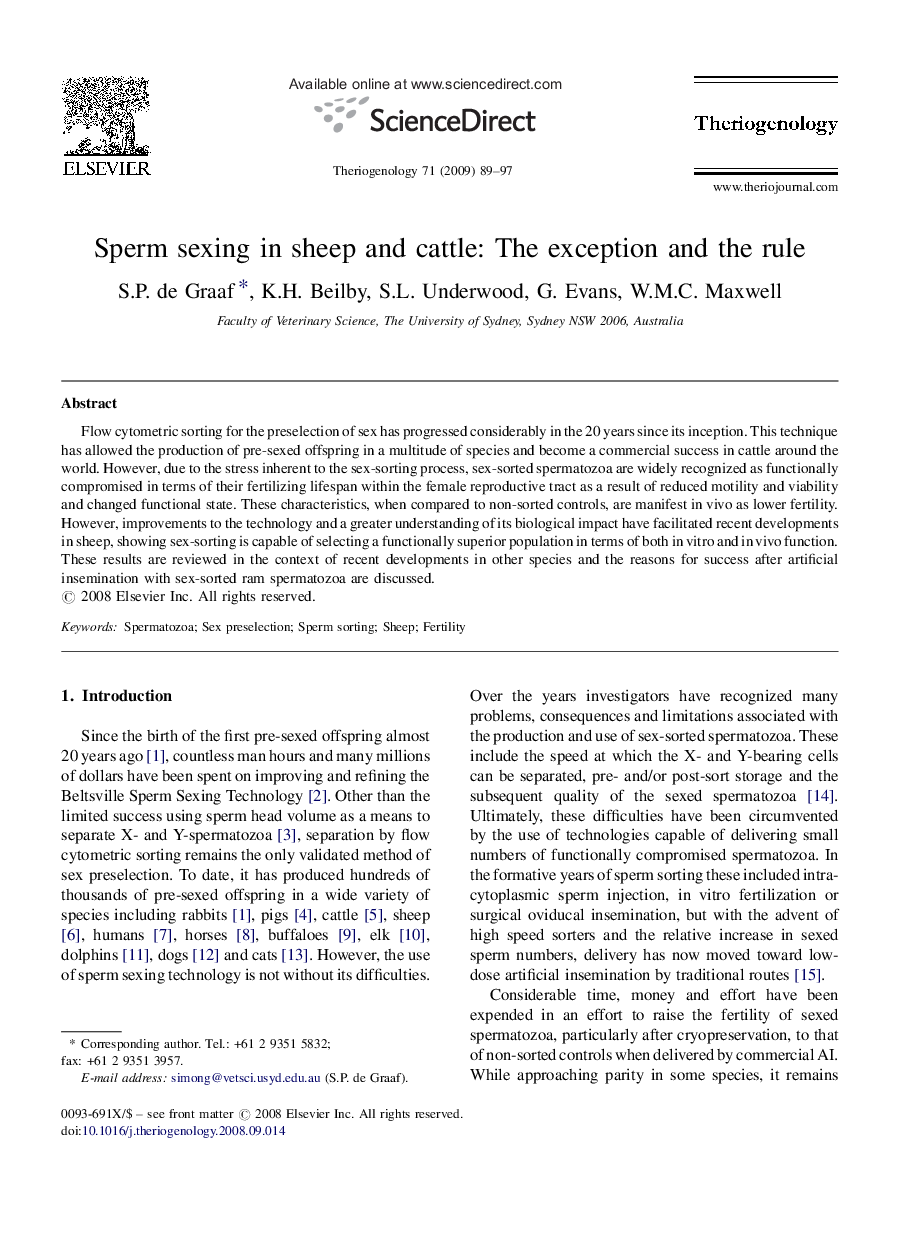| Article ID | Journal | Published Year | Pages | File Type |
|---|---|---|---|---|
| 2098116 | Theriogenology | 2009 | 9 Pages |
Flow cytometric sorting for the preselection of sex has progressed considerably in the 20 years since its inception. This technique has allowed the production of pre-sexed offspring in a multitude of species and become a commercial success in cattle around the world. However, due to the stress inherent to the sex-sorting process, sex-sorted spermatozoa are widely recognized as functionally compromised in terms of their fertilizing lifespan within the female reproductive tract as a result of reduced motility and viability and changed functional state. These characteristics, when compared to non-sorted controls, are manifest in vivo as lower fertility. However, improvements to the technology and a greater understanding of its biological impact have facilitated recent developments in sheep, showing sex-sorting is capable of selecting a functionally superior population in terms of both in vitro and in vivo function. These results are reviewed in the context of recent developments in other species and the reasons for success after artificial insemination with sex-sorted ram spermatozoa are discussed.
